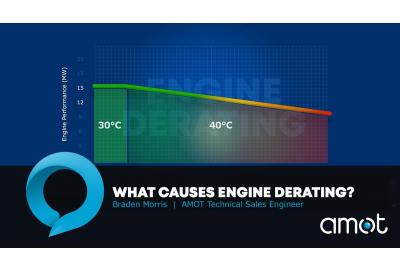In a previous post, I explained the causes of engine derating and how ambient temperature plays a critical role in an engine's performance. If you haven't seen this video, you can view it here. In Part 2 of our engine derating series, I explore this topic further and discuss how the AMOT Low Leak G Valve will maximize an engine's performance.
In tropical regions, bypass leakage in the cooling circuit plays a critical role in engine performance. As ambient temperatures increase throughout the day, more demand is placed on the cooling system to extract heat from the engine. We begin to see the deficiencies of a standard 3 way control valve as hot fluids exit the engine and head to the cooler. These valves generally allow 2-3% of hot fluid to bypass the cooler and return to the engine. The bypass leakage mixes with the fluid coming back from the cooler resulting in an undesired higher-temperature fluid entering back into the engine. The end result is a reduction of engine power output by as much as 5-10%.
By installing the AMOT Low Leak G Valve, bypass leakage is significantly reduced, improving the overall cooling system. The AMOT Low Leak G Valve is rated to meet ANSI IV requirements. Its compact design makes it an ideal solution when replacing 3 way control valves without piping modifications. It will improve your engine's performance by
- Preventing warm glycol from bypassing the cooler during engine operation.
- Eliminating cold bypass leakage to the cooler during warm-up.
- Avoiding engine power derating caused by inefficient temperature control.
- Providing a fast return on investment through fuel savings.
Contact our applications engineers to learn more and to help you specify the right valve.











